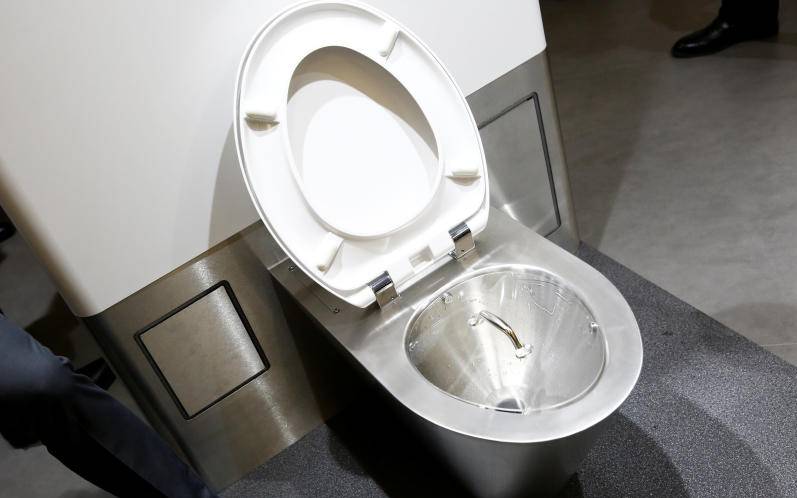×
The Standard e-Paper
Stay Informed, Even Offline

A man stands next to a toilet design by Helbling at the Reinvented Toilet Expo showcasing sewerless sanitation technology in Beijing, China November 6, 2018. [REUTERS]
The fifth edition of AfricaSan Conference that brought together ministers responsible for sanitation and water, key agencies and sector specialists working in sanitation and water across Africa, ended last week in Cape Town, South Africa, with a bleak reminder that access to sanitation and open defaecation is still on the rise.